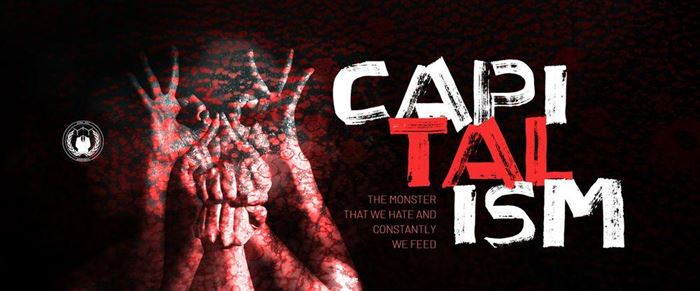Capitalism
The predecessor of Capitalism is feudalism, a system that was based on serfdom, almost completely rural and self-sustaining, where the rural worker was the servant of the feudal lords (landowners). As time went by, the fiefs began to open up, and observing the need for trade between them, it became necessary to create a new social class of merchants, who began to accumulate capital and become rich, called Burghers, owners of the burghs (centers of commerce). And to keep the money of these rich merchants, banks arose, which began to lend resources to them.
With this, we have the beginning of mercantilism, the first phase of capitalism, which was based on the exploitation of American and African colonies by European countries. It was based on the idea that wealth was dependent on the natural resources and riches already available in the world; it can be seen that the colonial system was the basis of mercantilism, however, with the independence struggles of many countries, this started to become a problem for this economic system. Thinking of a system that did not depend entirely on the colonial system, capitalism emerged with the first Industrial Revolution, building the first industries in England in 1760.
At the end of the same century, liberal thinking emerges with industry, where the State begins a process of deregulation, allowing free trade without state intervention; the law that governs the market is the law of supply and demand. In 1860 the second Industrial Revolution began, where the whole world started the industrialization race. At this moment, the union between bankers and industrialists took place; this union was known as industrial capitalism, later transforming itself into financial capitalism; the values of the products no longer responded to the living conditions of the wage earners.
Thousands of people lived in deplorable situations, crowded into small spaces, with the absence of basic sanitation, these were one of the many infrastructure problems present in the cities. "The workers submitted themselves to 16 exhausting hours of work a day, without distinction of women, men or children. There were no basic rights and they were treated badly, and if someone was injured they were taken off work and did not receive money for their support or assistance. Women were paid half of what men were paid, even though they worked the same hours, and they also had to take care of the house.
Socialism emerges with the proposal of socialization of the means of production, as a solution to the oppression and domination imposed by the dominant classes. Capitalism, by encouraging consumption and the use of the media to reproduce consumerist propaganda, encourages human beings to consume more than they really need. In his natural state, the human being collects from nature everything he needs to survive, so his nature is not linked to consumerism. In capitalism, consumption is synonymous with happiness and well-being, even status and prestige today in society, your recognition comes from what you have, not from what you are. With the great demand, several ecological problems are born that generate the emission of pollutant gases, environmental degradation and devastation, general pollution, and consequently, the destruction of ecosystems.
Besides that, disturbances are created by the compulsion to buy things that are often futile. According to Bauman in "Life for Consumption: The Transformation of People into Merchandise": "In consumer society, no one can become a subject without first becoming a commodity, and no one can keep his or her subjectivity secure without perpetually reviving, resuscitating, and recharging the expected and required capacities of a saleable commodity. He describes personal relationships as liquid and unstable, based on consumption since it is no longer something just for survival, but rather, as an organizer of social life influencing other aspects of life.
Being a consumerist is quite different from being a consumer. In society, we are not only consumers, but we are also a product. In order to be able to buy, we first have to be the product, we sell our labor, our work, our hours every day. You sell your labor in exchange for salary, to buy products, some because they are necessary for survival and others just because you want them.
The industries are not concerned with our welfare, they are only concerned with the sale, an example that can be given, is when you make a simple tea, from that mint you have at home, because it is cold or you have caught a rain and want to drink something hot. The tea industry that you buy, is giving little importance to you or your health, they just want their products to be consumed, they want you to spend on their products. They advertise their brand, huge marketing, in television commercials, billboards, social media ads. But the only thing they care about, is your money, is making profit. So they can have huge houses, expensive cars, the latest model of cell phone, they want profit in order to be consumerists.
Basically, consumerism is something unnecessary, created as a side effect of capitalism, because the human being in his state of nature doesn't have this kind of behavior, so this is a serious social problem, which causes both physical and mental problems, and also environmental problems, when resources are used that cause great production of pollution, deforestation, and degradation of fauna and flora, and if all this causes so many problems to the population, then do we really have a system that thinks of the best for human life, or the best for trade and capital development?




